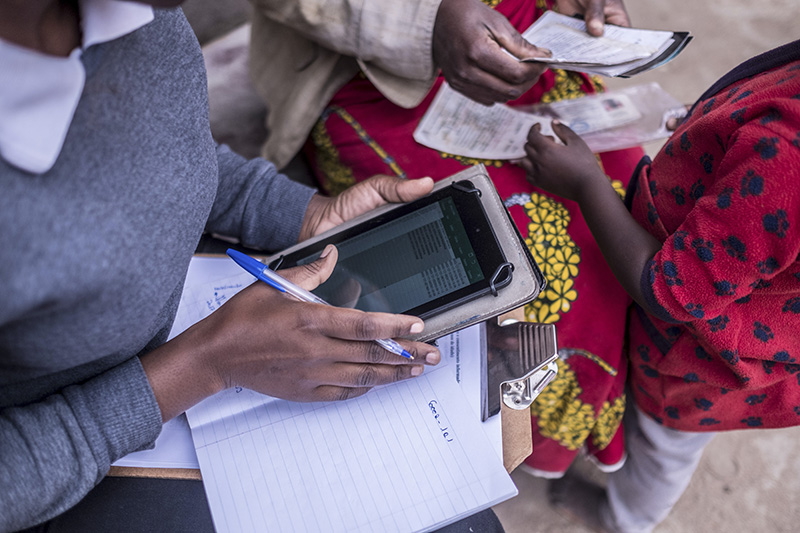Overview
IFPRI has pioneered work on rigorous economic simulation modeling of food systems to inform decision making by national governments, funding partners, and other stakeholders. IFPRI-led models analyze impacts of policy and investment options on nutrition, poverty, social inclusion, climate change, and the environment under real-time shocks (such as COVID-19 and the conflict in Ukraine) and under alternative future scenarios (including different socioeconomic and climate change trajectories). Three complementary modeling systems focus on different geographic scales (subnational to global), time scales (near-term to several decades), and sectoral scales (agriculture sector to economywide).
IFPRI’s Modeling Systems
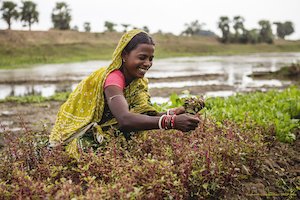
RIAPA
RIAPA (The Rural Investment and Policy Analysis data and modeling system) is IFPRI’s primary tool for forward-looking, country-level analysis. RIAPA has features that make it ideal for tracking the economywide impacts of policies, investments, or economic shocks at national and subnational levels over the near-to-medium term. RIAPA tracks changes in growth and employment across and beyond the food system, as well as poverty and food security at the household level.
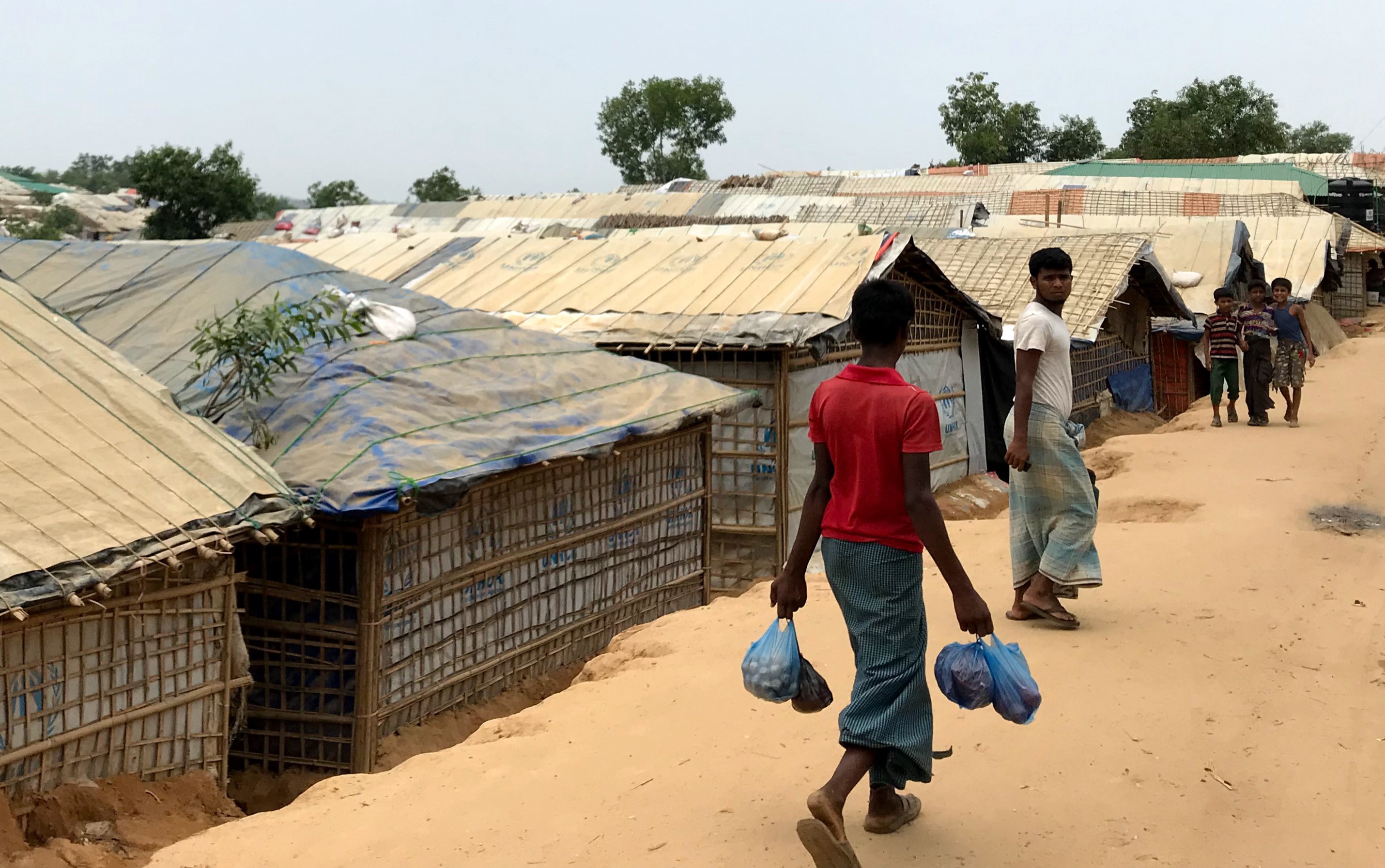
MIRAGRODEP
MIRAGRODEP is a global Computable General Equilibrium (CGE) model that captures international economic linkages through the international trade of goods, as well as through the movement of people and capital. MIRAGRODEP provides a rich set of indicators for each region, which allows measurement of the impact of policy changes on both macroeconomic aggregates and inequality indicators over the near-to-medium term.
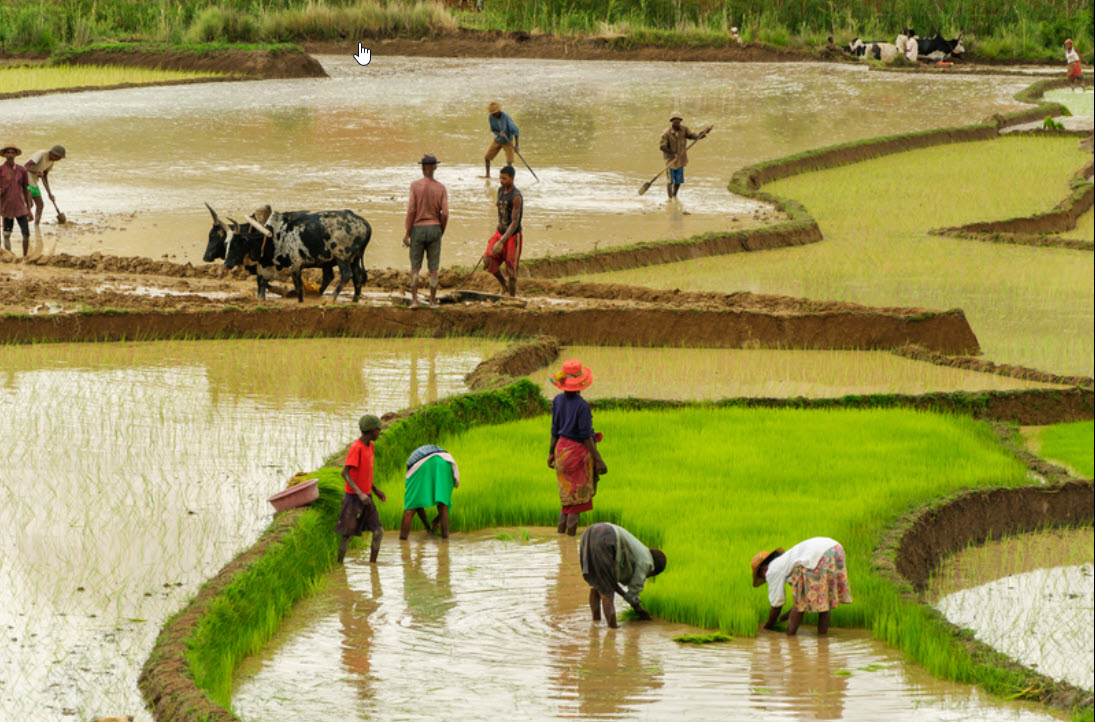
IMPACT
IMPACT (the International Model for Policy Analysis of Agricultural Commodities and Trade) is a system of linked economic, water, and crop models for analysis of climate change and other long-term drivers of the global food system. IMPACT focuses on the agriculture sector at subnational to global scales (including 60 commodities in 158 countries) over the medium-to-longer term (several decades).
Other modeling frameworks supported by IFPRI
DREAMpy (Dynamic Research EvaluAtion for Management, python version)
Open source, user-friendly software for evaluating the economic impacts of agricultural research and development projects.
MINK
A global-scale, systematically geographically gridded, process-based crop simulation modeling system.
SPAM (Spatial Production Allocation Model)
Open source, user-friendly software for evaluating the economic impacts of agricultural research and development projects.
Models Webinar Series
In this webinar series, our researchers present insights from IFPRI’s key modeling systems and their outputs, developed with other CGIAR Centers and partners. This work is helping to answer the critical questions facing decision-makers and stakeholders in today’s agrifood systems: What does climate change mean for the future of agriculture? How do we prioritize different agrifood system policies and investments? What are the sources, impacts, and trade-offs of agricultural productivity growth? What policy steps should governments take when a crisis strikes and a rapid response is required?
Related Blogs
-

An elevation gap: Why children at high altitudes are more likely to experience stunting
The heavy toll of thin air and poverty.
-
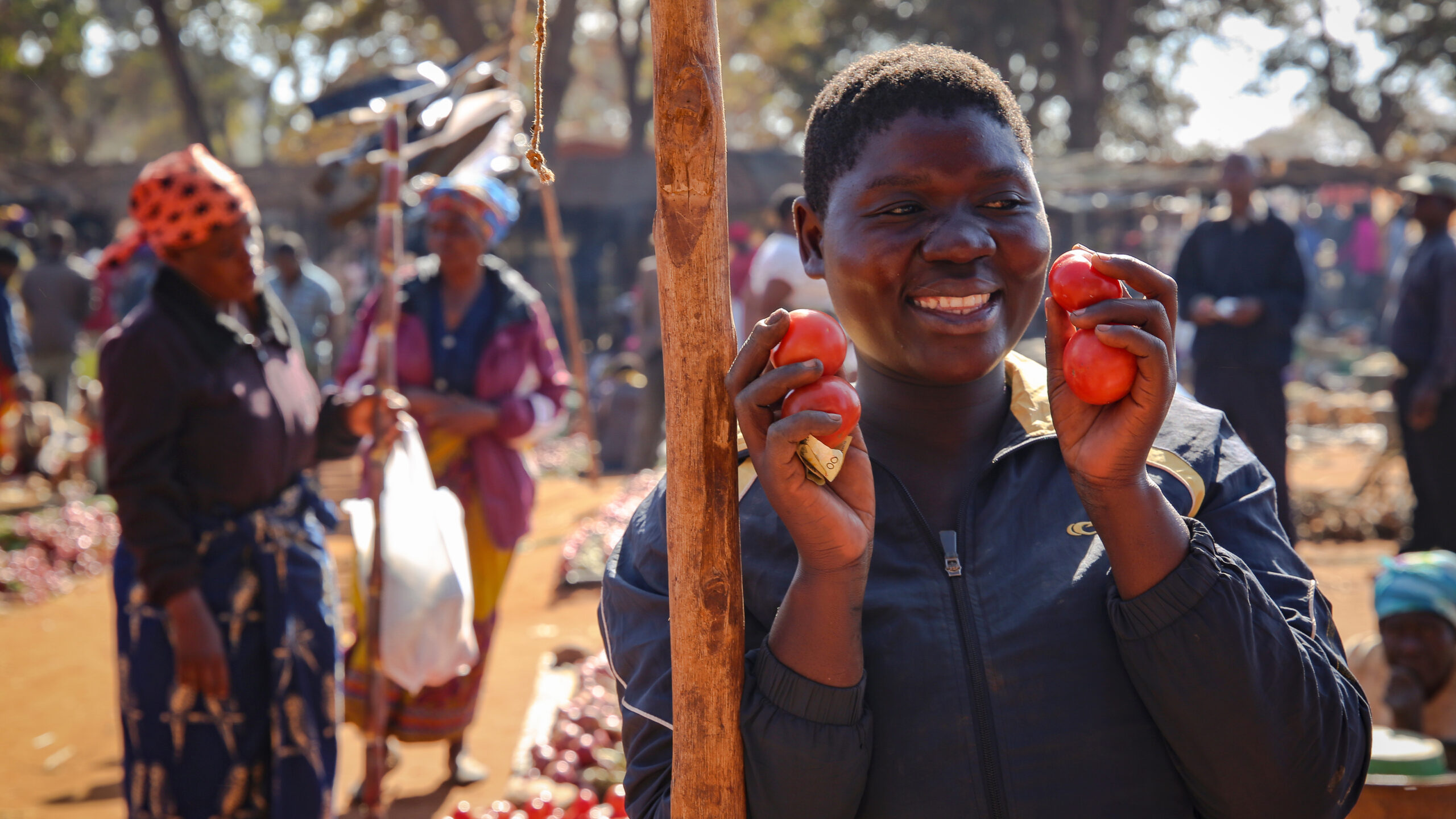
50th Anniversary Impact Assessment Report: Highlights of how IFPRI research has shaped global food policy
Taking stock the institute’s work.
-
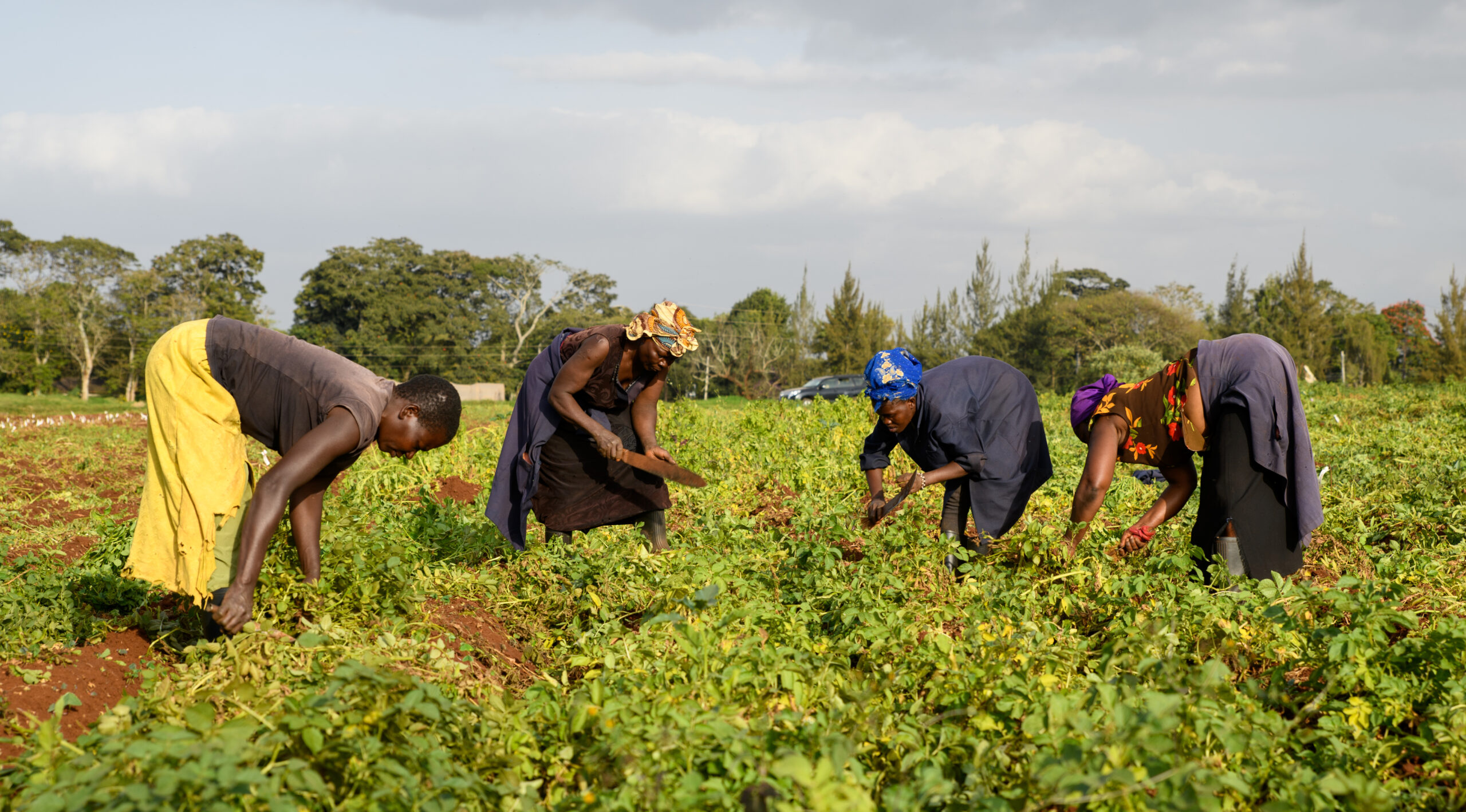
Building smallholder farmers’ resilience through index insurance in Kenya
Expanding the reach and effectiveness of a key government program.
Related News
-
IFPRI and Digital Green expand collaboration to test AI innovations for smallholder farmers
Building on years of joint research on digital extension, the collaboration will now focus on user testing of Digital Green’s FarmerChat application as part of IFPRI’s Generative AI for Agriculture…
-
Smartphones, women’s rights and coupons: new trends that can boost insurance for African farmers (The Conversation)
IFPRI’s Berber Kramer and Ruth Hill discuss how new, innovative forms of insurance could help insure farmers against weather shocks, and how South Africa’s G20 presidency can support these initiatives.
-
New study examines affordability and nutritional implications of the 2025 EAT–Lancet Commission diet
The study, published in The Lancet Planetary Health, used IFPRI’s IMPACT model to assess how adopting the EAT-Lancet diet could affect calorie availability, share of income spent on food, nutrient…
Related Events
-
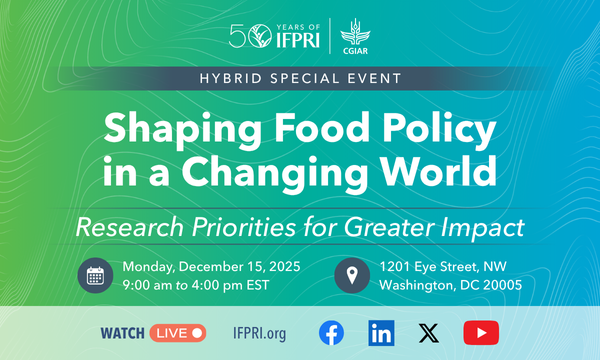
Shaping Food Policy in a Changing World: Research Priorities for Greater Impact
Also streaming on Please type your questions into the chat box with name, affiliation, and country. The event video, presenter slides, and podcast will be available in the days following the event. In today’s fast-changing world and evolving food systems, the need for evidence-based food policy has never been more urgent – demanding research that…
-
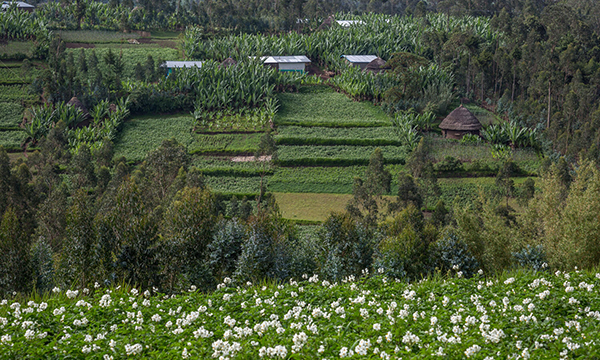
Rooted in Biodiversity: Transforming Agriculture through Nature-Positive Solutions
Agriculture is both a major driver of biodiversity loss and a crucial part of the solution. This session will present research and evidence underpinning the forthcoming World Bank report Rooted: Agriculture Rooted in Biodiversity, which identifies strategies and investment pathways to harness biodiversity for resilient agricultural systems. By showcasing sustainable practice bundles, the economics of…
-
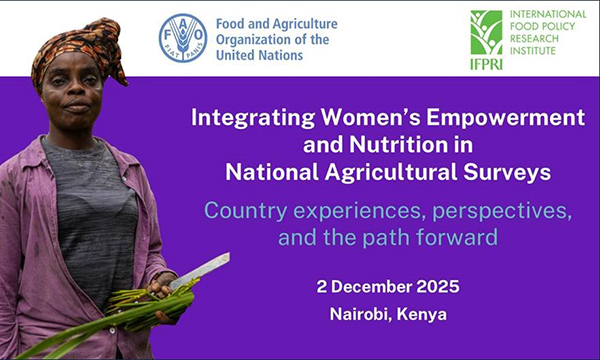
Integrating Women’s Empowerment and Nutrition in National Agricultural Surveys: Country Experiences, Perspective and the Path Forward
Agrifood systems are essential to women’s livelihoods globally, yet their contributions often remain underrecognized. Women are disproportionately concentrated in informal, low-skilled, and labor-intensive roles and face limited access to resources and exclusion from key decision-making processes. To address these gaps, new tools have emerged to better assess women’s empowerment. Building on the Women’s Empowerment in…
-
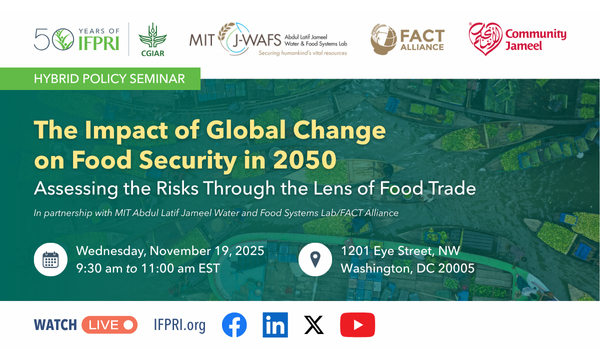
The Impact of Global Change on Food Security in 2050: Assessing the Risks Through the Lens of Food Trade
Trade is crucial to achieving food security. The Jameel Index for Food Trade and Vulnerability (Jameel Index) is a valuable new tool to guide policy and investment decisions that support sustainable international development and food security through food trade. The Index provides food trade vulnerability scores for more than 180 countries by synthesizing global indicators…




